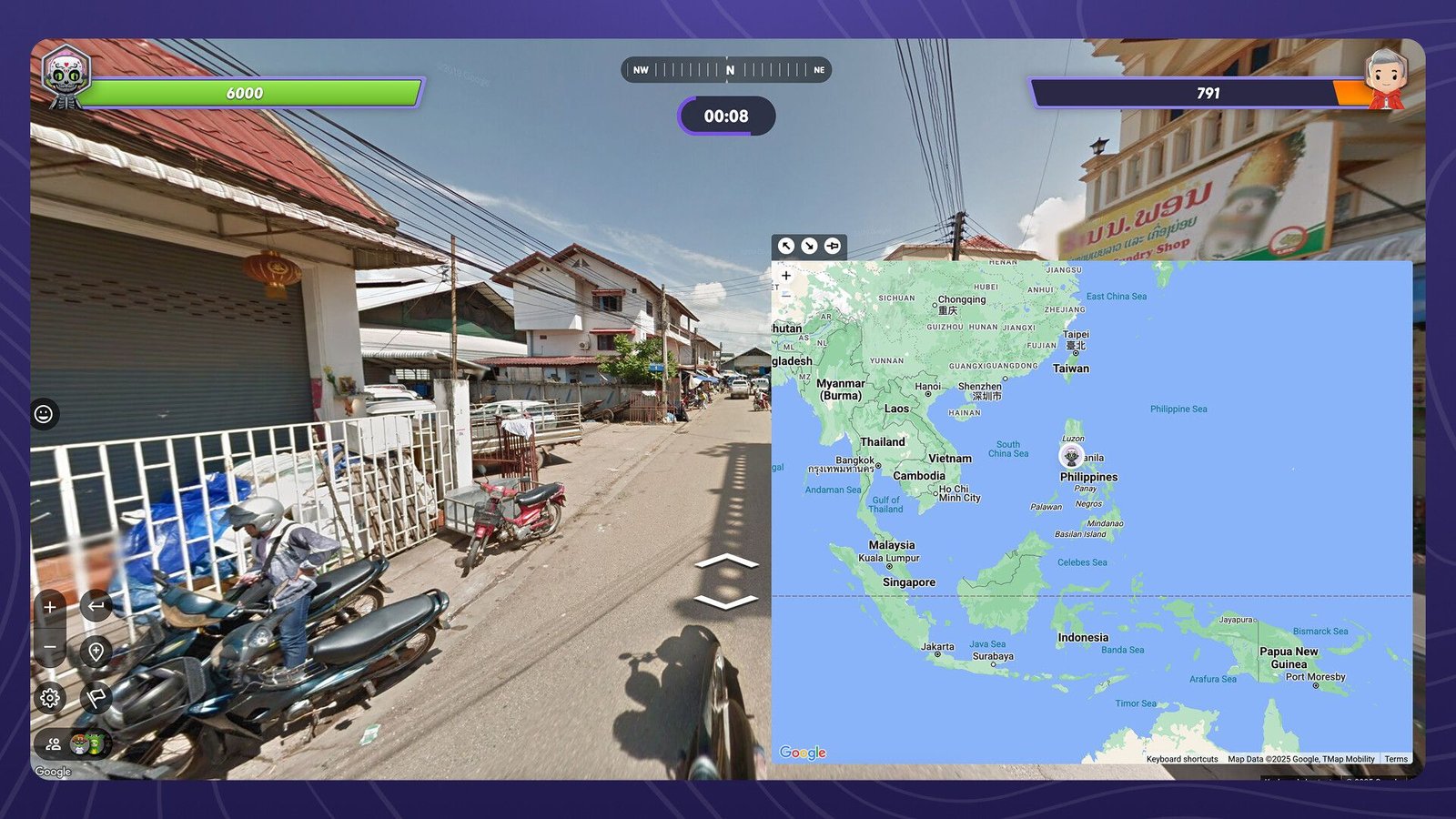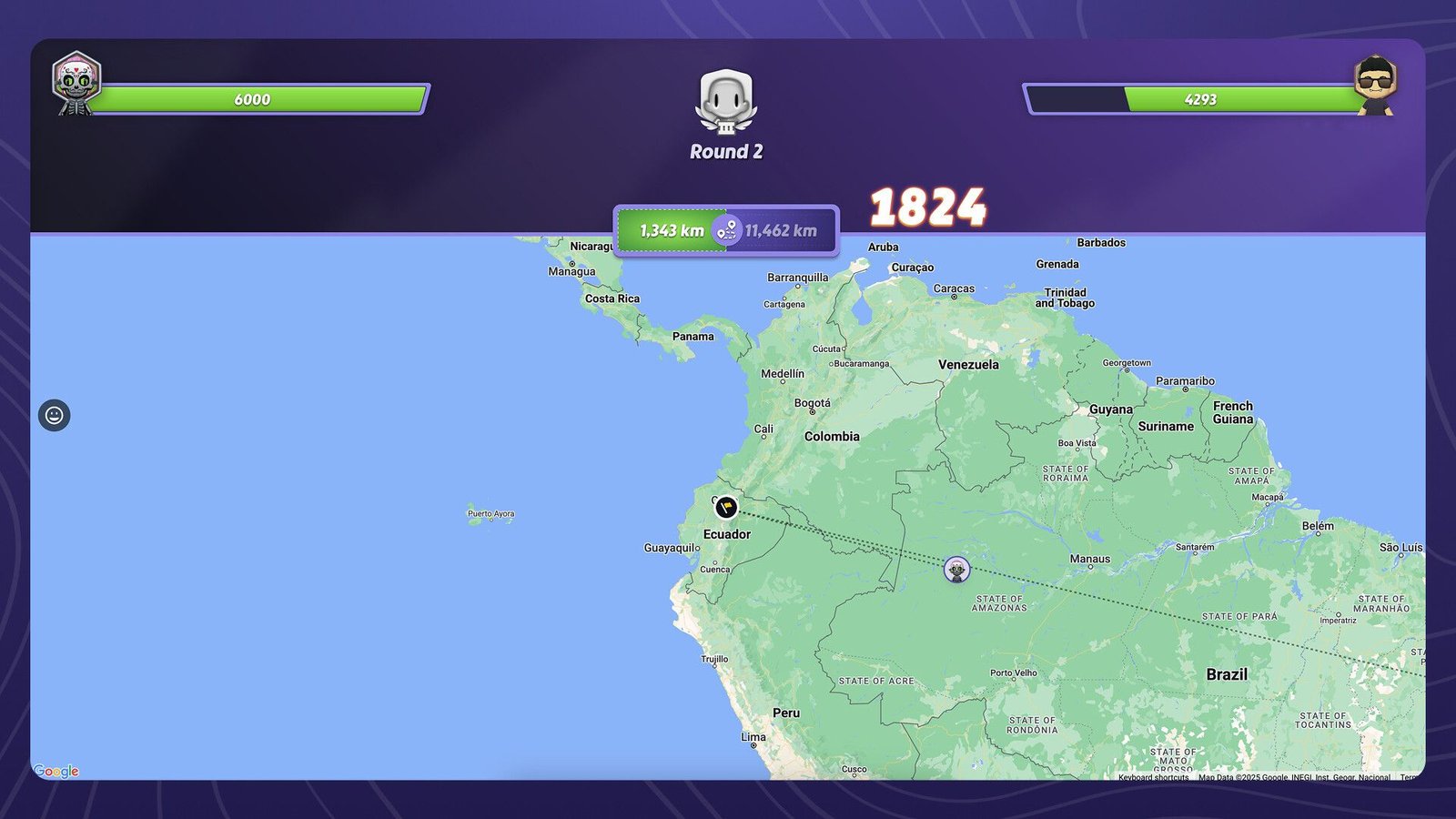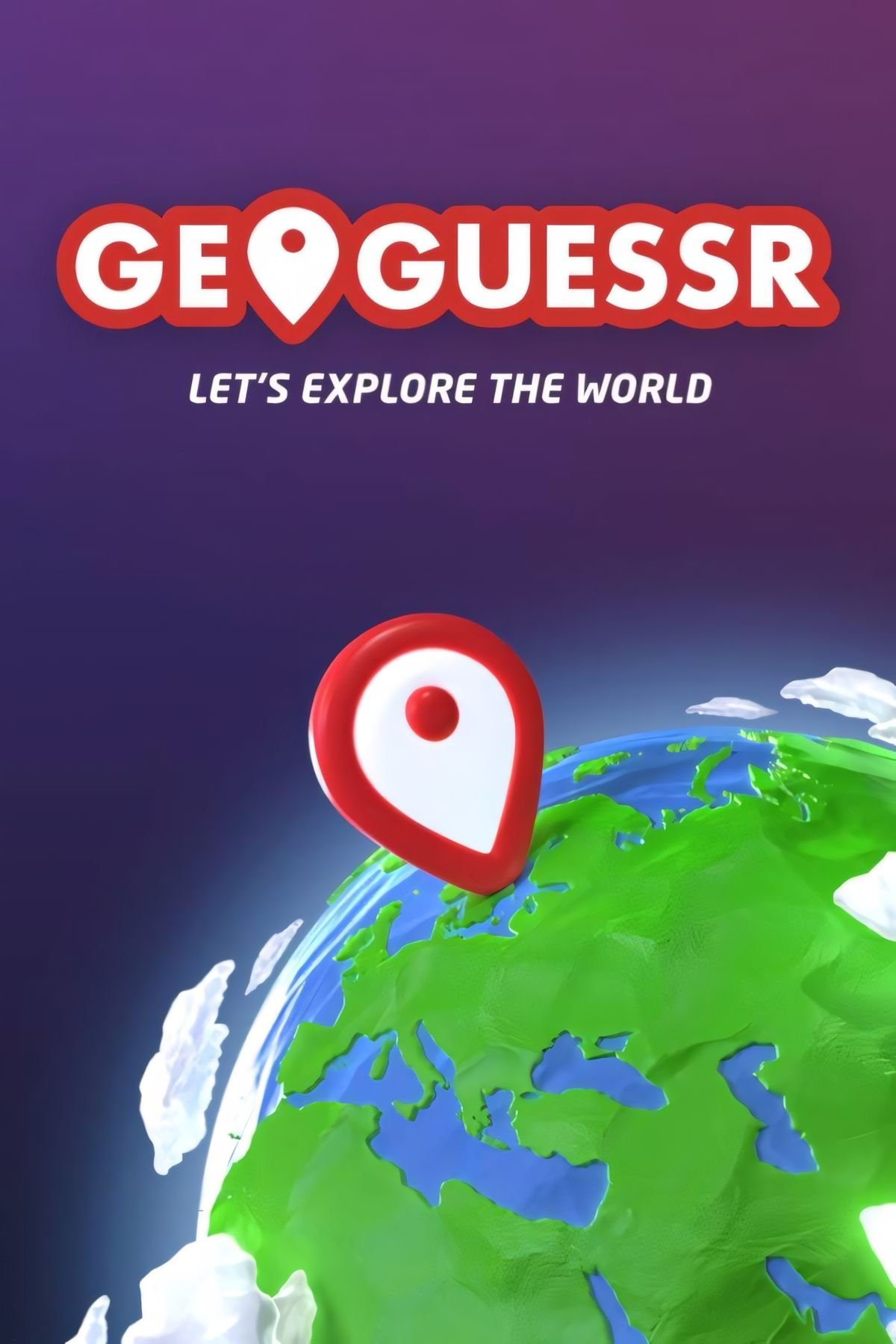Ten years ago, Geogussr would have been the sort of browser experience you’d play in class when you should be doing school work, cheekily switching your browser window to fit in another two rounds before the teacher catches a glimpse of your monitor.
You’d compete with friends to try and recognise random locations from across the globe and chase high scores. It possesses such a simple and effective premise, I can’t help envisioning it being played in any other setting. But because games are beholden to capitalism like every other source of modern entertainment, it couldn’t stay that way for long.
Geoguessr Doesn’t Need To Be This Complicated
My colleague Ben Sledge has already written an extensive piece on the ‘Fall of Geoguessr’ that is well worth reading, since I’ll be approaching this from a newcomer’s perspective. Over the years, I’ve seen countless streamers playing the browser title, attracting millions of views as they pinpoint the exact location of random Google Street View snippets with scary levels of accuracy. It’s incredibly impressive, and most likely paved the way for how it’s become a bedrock of official competitive competitions in recent years.
I also love how Geoguessr has inspired virtual clones where you guess the locations from certain video games, with Breath of the Wild being a particular highlight.
Geoguessr was first created by Swedish IT expert Anton Wallén back in 2013, who wanted to turn his casual enjoyment of visiting random international locations on Google Maps into a bold new interactive experience. He designed an API that would spit out a random location that the user was then prompted to pinpoint, with a competitive element following soon after. It’s a product of two weeks of work, which was then shared online and became an instant hit.
It began life as a free-to-play experience, because any normal person wouldn’t experience a browser game like this and immediately think of how to monetise it. The initial pitch was a fun experiment by a single person that lent itself naturally to competition, but I have to imagine that was to compete with friends and family, not against the entire world for cash prizes. Kicking yourself or cheering in triumph when you guess the location of a field in rural Russia is cause enough for celebration; you don’t need money to get involved.
You can play up to three free locations per day on the official website, but after that, things start to get way more complicated.
For a long time, Geoguessr was free to play, offering up challenges for you to complete every day or a more casual mode of play that threw up a location and asked you to give it your best shot. This was gradually scaled back as premium offerings became more important, until the free options were eliminated entirely in February 2024. The only reason a decision like this was made was because there was money to be made. Plain and simple.
Geoguessr Putting Profits Over People Was Sadly Inevitable
Right now, you can pick up Geoguessr on Steam with major restrictions or opt for three tiers of Pro membership – Basic, Unlimited and Elite – at variable different prices per month. You’ll need one of these memberships to play most modes, so it’s clear why much of the community soured on Geoguessr over the years as it put up paywall after paywall.
Geoguessr is simple, but it’s also moreish and satisfying in ways that people will pay for if the price isn’t too steep. Multiply that figure by thousands or even millions, and you’ll have a very successful yet soulless product. It breaks my heart that a concept this enjoyable is now only widely accessible by giving in to a toxic business model that represents the very worst of modern video games. You can dress up gameplay with cute avatars and leaderboards as much as you like, but the corporate interests are clear to see no matter what.
Geoguessr also has to pay Google licensing costs to remain operational, but there has to be a more elegant way to tackle this obstacle than throwing away audience goodwill.
In another universe, Geoguessr would have remained a free and approachable title that was not held back by premium membership tiers and competitive scenes prioritising profits again and again. But we don’t live in that world, and judging from where the industry is right now, nothing will ever change.






